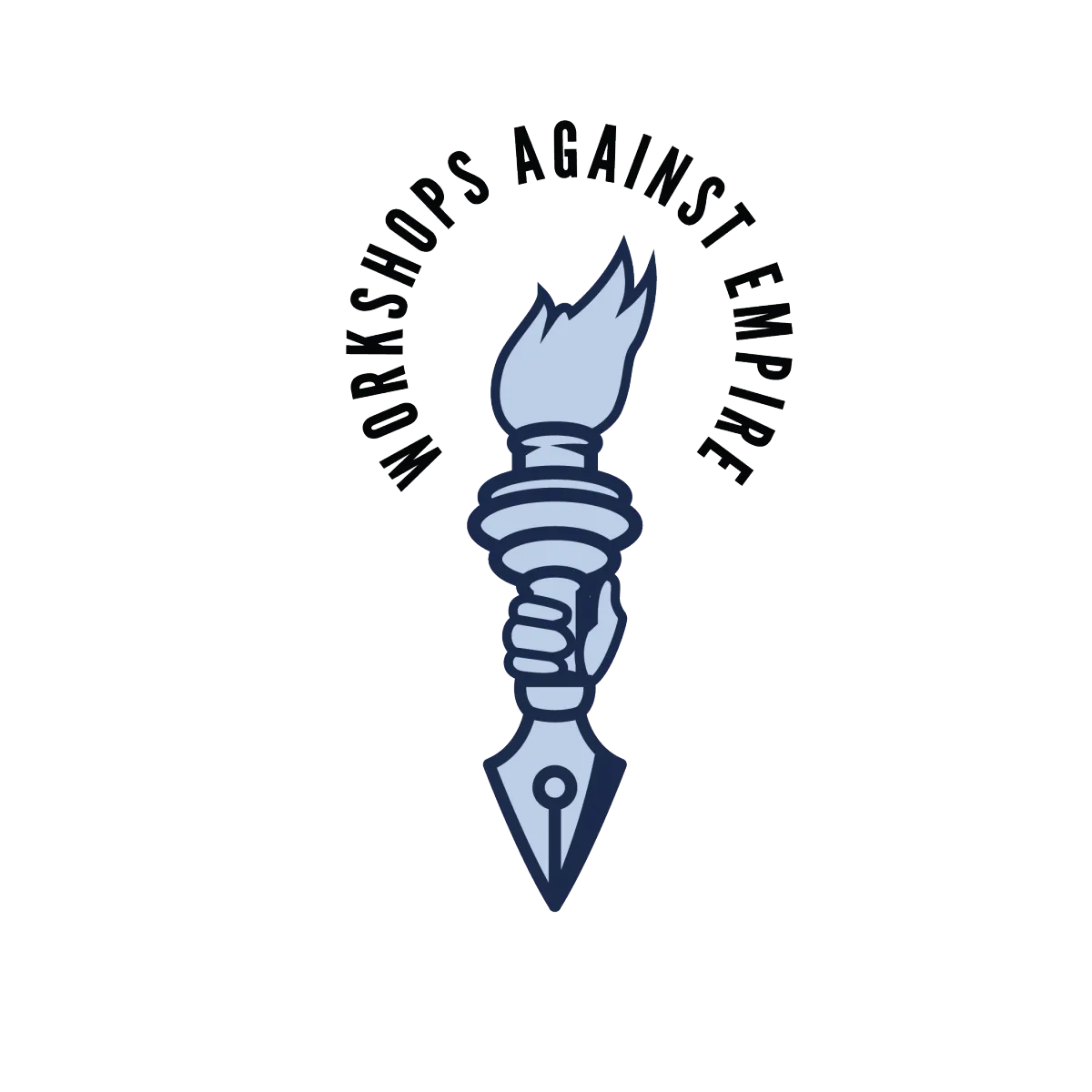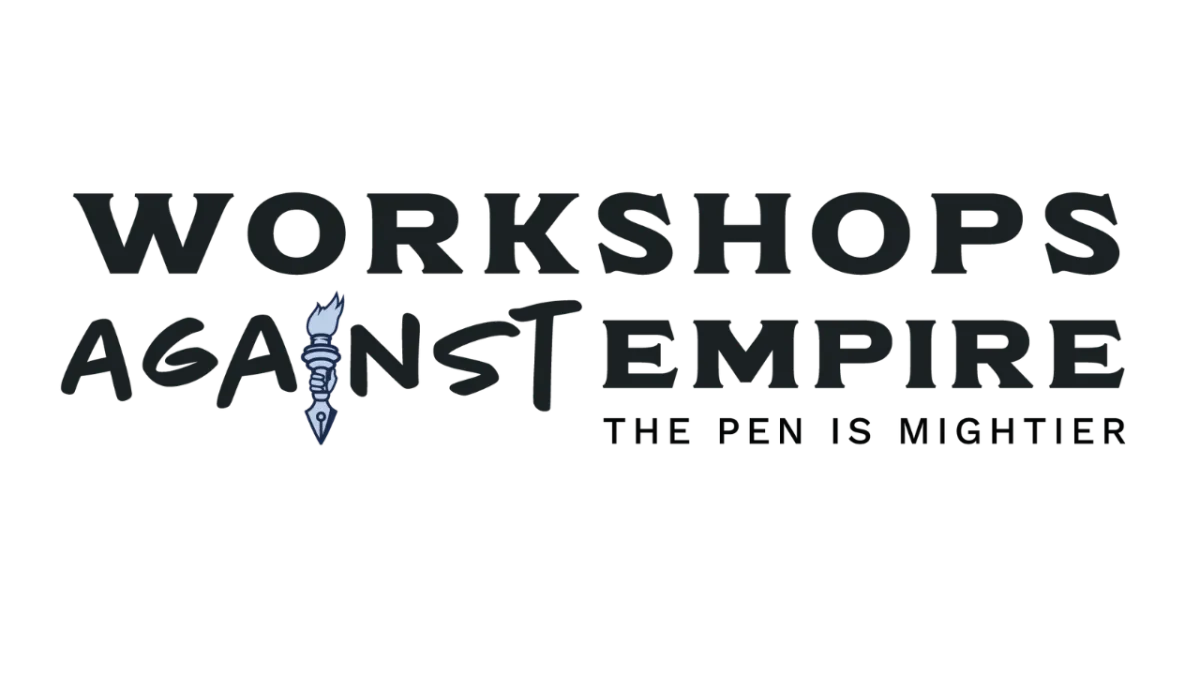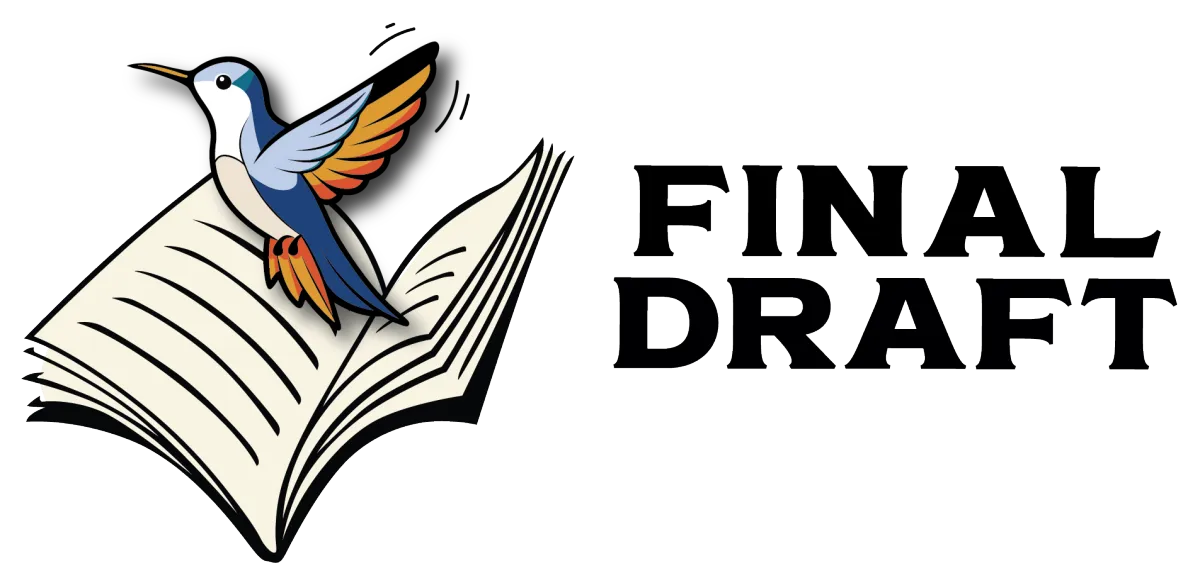
You're serious about the craft of fiction.
It's time to get serious about the business of publishing.
WHAT WE DO
Tell your story.
Change the world.
Workshops Against Empire is the ONLY program that combines a complete framework for writing a publishable novel with a focus on the social impact of your story.
That’s right. An alternative MFA in Writing program with social justice at its core.
WHAT WE DO
Tell your story.
Change the world.
Workshops Against Empire is the ONLY program that combines a complete framework for writing a publishable novel with a focus on the social impact of your story.
That’s right.
An alternative MFA in Writing program with social justice at its core.
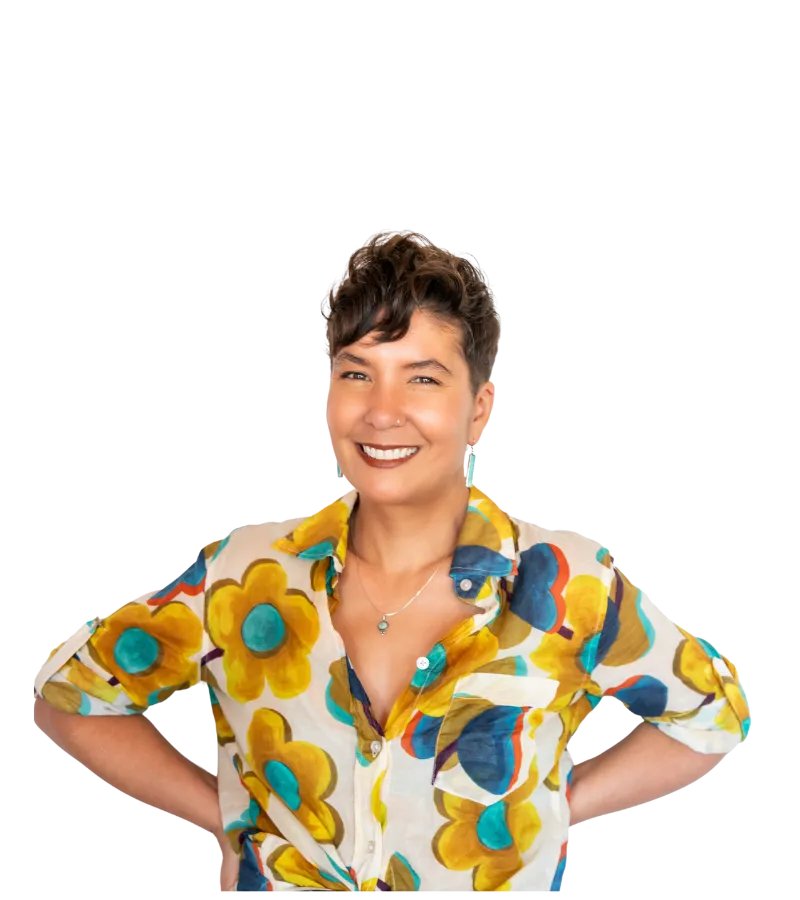
The fifth and final signature course of the Workshops Against Empire alternative MFA program
—now available in a self-paced format for just $97!
You could spend $40K on an MFA and still have no idea what agents and editors are really looking for in a submission—or even how to find the right pros to query.
You could spend a lot of time on the internet trying to make sense of contradictory advice without getting much farther.
Or you could work with a professional editor and coach (that’s me!) in developing those query materials, and learn how to find the people who are looking for exactly what it is you write.
If you’ve put in your 10,000 hours on the craft of fiction but have not yet broken through with your first published novel, it’s time to stop spinning your wheels.
In this course, you will learn:
How to read your work the way agents and editors will—before you submit
How to create powerhouse opening pages that will leave agents and editors with no choice but to read on
What it really takes to craft a strong query letter
How to write a synopsis without losing your mind!
The goal of this class is simple: to help you beat the odds with publishing and establish a career as an author.
You’ll leave with a complete submissions package (query, synopsis, and opening 10 pages), as well as a submissions strategy designed to help you break through with your first published book.
Covered in This Course
Section One: How Editors (and Agents) Read
The way you read your work is not the way editors and agents do, and learning to see your work the way they'll see it is half the battle.
In this section of our course, I’ll show you how to avoid the most common mistakes writers make with their opening pages, as well as:
The two things that MUST happen on the first page of your novel
What editors are really talking about when they talk about “presence on the page”
How to create a connection between your reader and your POV character, right out of the gate
The number one thing that gets readers hooked and turning the pages—and how to use this to create a sense of strong pacing in your opening
Section Two: Selling It
Query letters and synopses can be maddeningly hard to write—but they’re a lot easier if you understand what agents and editors are actually looking for when they read them.
In section two of this course, you'll learn:
What to include in your synopsis and query, and what to leave out
Where specifics really matter (and where they really don’t)
The differences between fictional prose and sales copy (hint: your query is sales copy)
The number one thing agents and editors must see in your query and synopsis
Section Three: Increase Your Odds
It’s no secret that traditional publishing is more competitive than ever. The good news is, taking the time to do your research up front can dramatically increase your chances of being offered agent representation or a book deal.
In this section of our course, I'll share:
Strategies for researching (and vetting) agents and editors
How to keep abreast of trends and current desires in the industry (without making it a full-time job)
Databases and directories to bookmark (these are not all created equal!)
How to create a targeted list of dream agents/presses
How to use social media to stay on top of fast-action opportunities and cultivate personal connections with publishing pros
Section Four: The Emerging Author
In this final section of Final Draft, I’ll share case studies of revisions that led to the publication of an author’s first book, as well as some research, goal-setting, and visioning tools to establish:
Your long game as an author
Where your work fits into the market, and how to capitalize on this
How to use contests and awards to build your author platform
How to leverage the power of conferences, seminars, residencies, and other “in-person” writers’ events
Frequently asked Questions
Who is this course for?
This course is for writers with a complete draft of a novel they plan to pitch for traditional publication in its current form. (Traditional publication = Big Four deal or mid-sized to small presses.)
Some background understanding of the querying process is helpful, but not required.
Who is this course NOT for?
This course is not suited for those who are still in the early stages with their novel.
It is not for those planning on self-publishing.
It is not for those who don’t understand how competitive the traditional publishing landscape really is.
And it’s not for those who are so attached to their opening pages that they can’t seem themselves truly revising that opening based on professional feedback.
What is your framework based on?
My framework is based on the work of Jane Friedman and Jennie Nash, as well as my background as an acquisitions editor and judge for contests and anthologies. It makes use of best practices derived from the study of neuroscience, as well as the latest trends in publishing.
What's the time commitment?
The answer to this question will be different for everyone, depending on your level of experience with developing pitch materials, and whether or not you already have an existing query and synopsis.
That said, you can plan on around 3–6 hours a week for this course.
Can I download the course material in Final Draft for offline viewing?
Yes, the lectures, videos, and assignments are fully downloadable.
Is Final Draft part of a larger curriculum?
Yes! Final Draft is one of the five core courses at the heart of my year-long alternative MFA program, Workshops Against Empire.
About Your Instructor
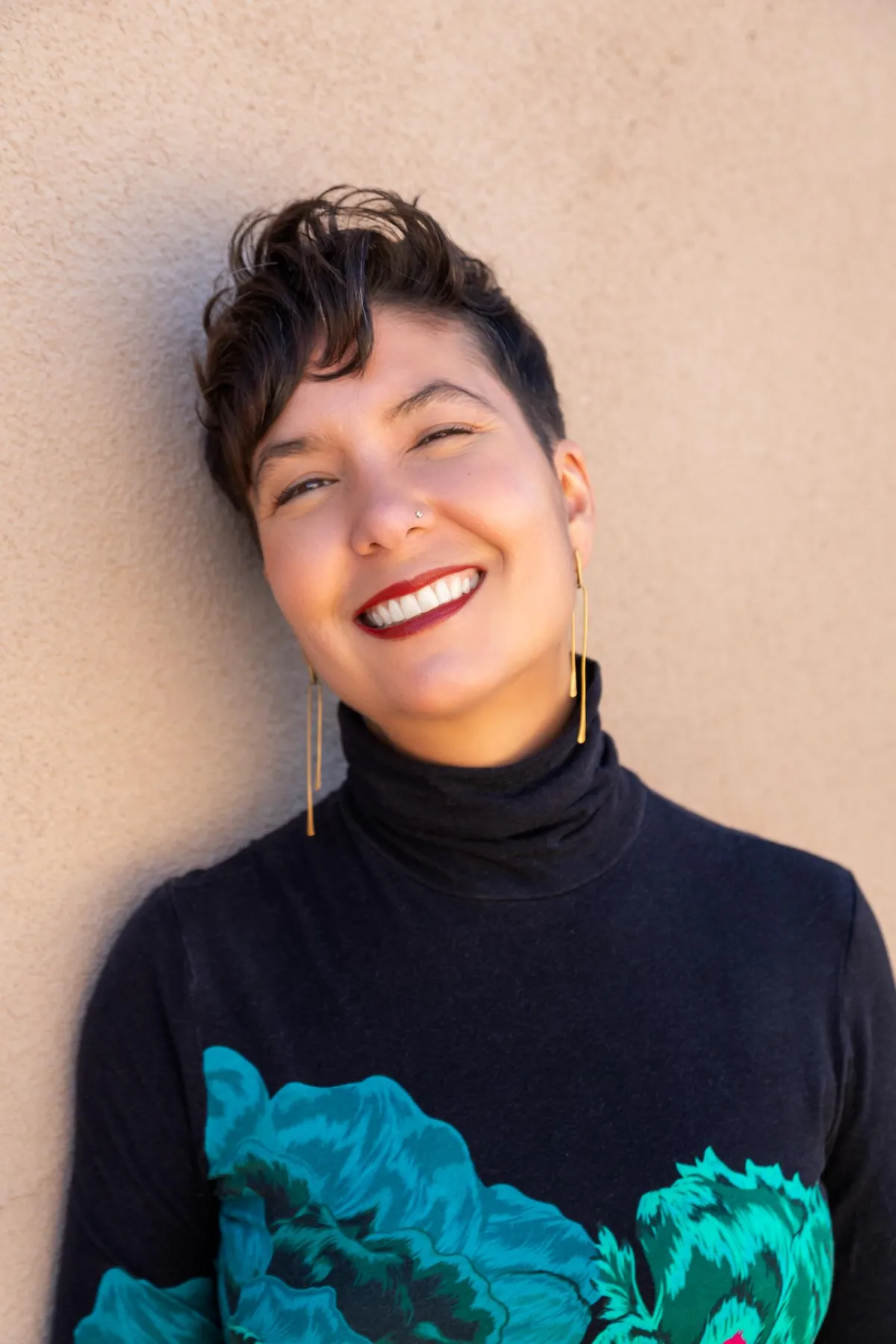
An American with roots in the Caribbean and upper Midwest, Susan DeFreitas is the author of the novel Hot Season, which won a Gold IPPY Award, and the editor of Dispatches from Anarres: Tales in Tribute to Ursula K. Le Guin, and the creator of Workshops Against Empire—the alternative MFA program for writers who want to change the world. Her work has been featured in the Writer’s Chronicle, LitHub, Story, Story Quarterly, Lady Churchill’s Rosebud Wristlet, Daily Science Fiction, and elsewhere.
An independent editor and book coach, she lives in Santa Fe, New Mexico.
You can learn more on her personal website,
Praise for "Final Draft"
"I took this class with Susan DeFreitas two years ago, and it REVOLUTIONIZED my novel. I've now published the first chapter as a short story and landed an agent. Susan ROCKS."
- E. Wortman-Wunder, represented by Kiele Raymond of the Thompson Literary Agency
"This entire course is extremely helpful, and your recommendations are spot-on. My gut was already telling me where the trouble areas were, but until now, I didn't have a framework to guide me in revising. Extremely valuable!"
- TK Greenleaf
"This class has been such an eye-opener. I've always wondered what made one story stand out from another from the get-go. I get it now. Priceless."
- H. Dufour
"I've been investing in webinars and classes and craft teaching for a decade, but your first lecture here has cracked open what hooks me in a first page like nothing ever has. So glad I signed up!"
- C. Campbell
Ready to find out what it takes to get published?
MENU
ON SOCIAL
